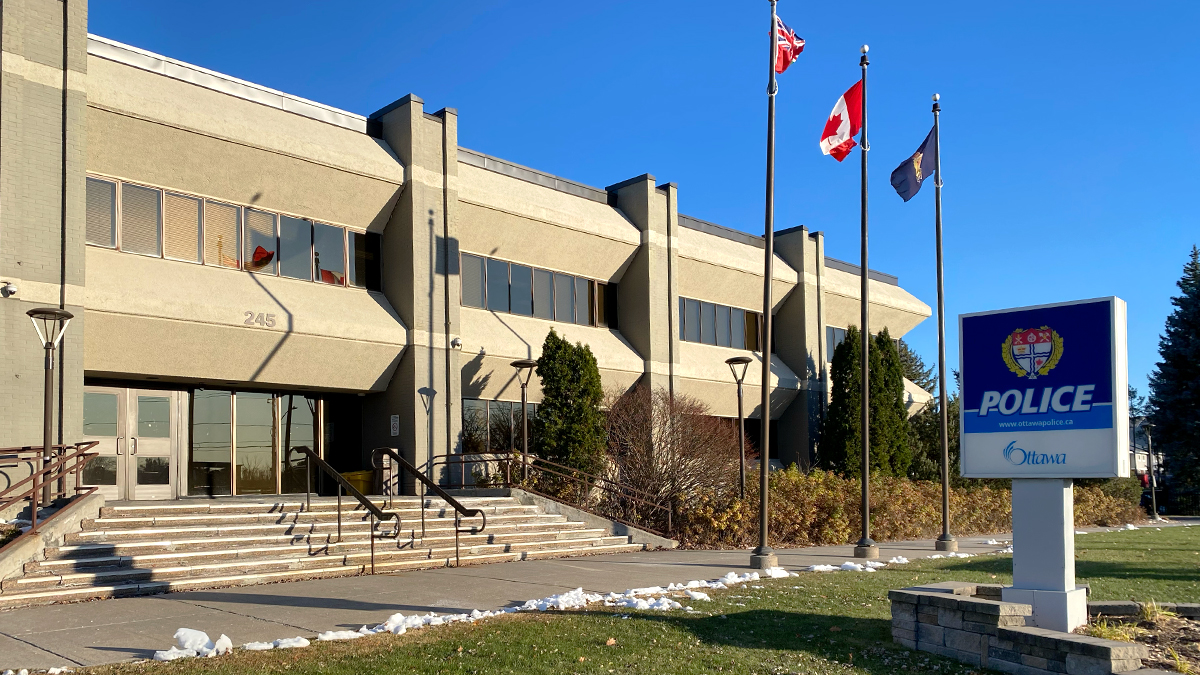Since the Oct. 7 Hamas attack and Israel’s military mission in Gaza, Shira, a Jewish student at the University of Ottawa, says she has felt a shift in people’s attitudes toward her.
At first, she said people were silent or empathetic. But as tensions rose and more people started voicing concerns about the conflict, hateful actions and messages soon overshadowed the empathy.
“For years, I had heard stories from people about antisemitism on campus and antisemitism in Canada in general, and I had been trying to convince myself that this could never happen to me,” she said.
Shira, who asked that her last name not be used because of safety concerns, said she started receiving daily online hate two weeks into the conflict.
She said the messages got “progressively worse” until she got a death threat from another uOttawa student, which she immediately reported to Ottawa police.
“When people tell you they want to [kill you], it gets your anxiety bubbling in a way that I, personally, couldn’t control,” she said.
Shira decided to leave Ottawa after receiving the threat. She said she no longer felt safe in the community and the thought of going to school caused extreme anxiety and stress.
“Every time I thought about coming back to school, I started crying or I’d have a panic attack,” she said. “I realized that I can’t be expected to go into my classrooms if I’m not even sure I can make it out of them alive right now.”
Shira is just one of the students who has reported being a victim of the increase in reported hate crimes since the Hamas attack on Israel.
In Ottawa, there were 56 hate-motivated crimes reported to police in October 2023 — a 56-per-cent increase from 36 crimes reported in October 2022, according to the Ottawa Police Service’s hate and bias crime unit.
OPS defines “hate crime” as a criminal offence motivated by hate or prejudice toward a victim's actual or perceived race, national or ethnic origin, religion, sex, age, disability, gender identity, sexual orientation or any other similar factor.
While Ottawa police refused to provide exact demographic numbers, an OPS spokesperson said in an email that Jewish and Muslim communities are among the most targeted.
Jeremy Borg, co-vice-president of social events at the Jewish student organization, Hillel Ottawa, and outgoing president of Carleton University’s chapter of the Jewish fraternity Alpha Epsilon Pi, said he has seen increased tension since Oct. 7.
As a student leader in the Jewish community, Borg said he has felt an additional responsibility to support his peers.
“Not only am I responsible for my own mental health, but I'm responsible for making sure that everyone else is okay,” he said. “I've had to sit and talk until 3 a.m. with friends who are having panic attacks. I've had to talk to even my own mother crying because she feels that the world hates her being Jewish.”
Police-reported antisemitic hate crimes were on the rise even before the conflict started. In July, OPS reported that the number of reported hate crimes in the first six months of 2023 rose by 23.5 per cent when compared to the same period in 2022.
There is a similar trend on a national level. From 2020 to 2022, there was a 52-per-cent increase in reported antisemitic hate crimes across the country, according to a Capital Current analysis of Statistics Canada data.
Reported hate crimes against Muslims were also on the rise prior to the conflict, increasing by nearly 29 per cent from 2020 to 2022, according to the same StatCan dataset.
Mira Sucharov, a political science professor at Carleton University who specializes in Israeli-Palestinian relations, said that the 18-year Israeli blockade on Gaza, the occupation of the West Bank and the fact that Palestinian refugees are denied return to Israel, have left Palestinians with longstanding grievances.
As of Nov. 10, Gaza's Health Ministry has reported 11,078 casualties since Oct. 7 in the conflict. Hamas and Israel have since agreed to a four-day ceasefire to facilitate a hostage exchange.
“I think some people are trying to import the conflict from Israel-Palestine over to [Ottawa] and are expressing things in very awful ways, in ways that are hateful, even if they didn't intend to be,” Sucharov said. “One can be antisemitic in impact, even if the intent of it was to make a statement against Israel.”
“I think Carleton — and any university — needs to stand up [to] hateful actions or any harassing actions that target a Jew for being a Jew or a Palestinian for being a Palestinian,” Sucharov added.
While uOttawa did not respond to Capital Current’s request for comment in time for publication, Carleton and uOttawa have released statements saying student safety is a priority.
Carleton’s statement said the university is monitoring online activity for potential threats and is increasing patrols on campus to ensure student safety, while uOttawa’s statement encouraged students to use campus support services or turn to their multifaith centre.
Sucharov said fostering conversations between Jewish and Palestinian communities is key to reducing hate-motivated actions.
“As soon as you say what you're standing for rather than who you're standing with, it becomes a lot easier to talk about common goals [and] common policies,” she said. “It gets a lot easier to talk about the kind of just outcome, an equal outcome, that we can together as Canadians push for.”
Shira said she has started to see more respectful conversations happen among her peers, but there is still room for improvement.
While she said she doesn’t have plans to come back to Ottawa anytime soon, Shira continues to be vocal about her family.
“Safety is my utmost importance, but I will never be silent. And if that means I have to yell and scream from five hours away from my own house, I will do it 1,000 times louder.”




